Digital Marketing- Giorgi Kenchuashvili
Giorgi Kenchuashvili has been working in the field of digital marketing since 2010 and still works at digital communication agency Maverik founded by him. Moreover, he has been involved in educational field since 2014 and has worked/is working at universities, such as: Business and Technology University, Ilia State University, Caucasus University, GIPA and Alterbridge. Moreover, has work experience in the area of non-formal/training center education.
The objective of the course is to give students a broad and general knowledge in the field of social media marketing, to teach the use of various social media channels for marketing purposes, planning advertisement, effective use, planning social media campaigns.
Training outcomes:
- Ability to understand, operate and apply knowledge
- Critical thinking, analytical skills
- Obtaining, selecting and processing of information
- plan and organize tasks, time management
Use of technical means and information-communication technologies.

Front-end Development - Kristina makalatia
Lecturer of front-end development course since 2018. Head of front-end development trainership at Iliauni Innovative Technologies Laboratory (unilab) since 2021, lecturer of front-end development course at the Digital Industry Academy since 2020, lecturer of front-end development course at the Business and Technology University since 2020, lecturer of front-end development course at Iliauni Innovative Technologies laboratory since 2020, lecturer of front-end development course at Geolab Innovative Technologies Laboratory since 2018.
Has experience in working in various international projects in the above areas, cooperating with EU and UN programs.
Front-end development – consists of three main parts: 1. html – page skeleton, structure; 2. css – page styles; 3. javascript – website functionality.
front end development is the client side, when we open any page and what we see visually: images, titles, logo, page navigation structure, social icons or buttons.
The course is of practical nature and during it the students will create simple websites. After each lecture, students will do their homework according to the material passed.
Training outcomes:
- Basics of html, css and javascript
- Create web pages tailored to all resolutions
- Create a portfolio and start a developer career

UI/UX Design - Nini Tevdorashvili
She started professional career with a bachelor’s degree in Informatics (in the area of development) and then moved on to graphic design.
Has 8 years of work experience in the field of design, during which time she has held various positions at public and private sectors – at educational institutions as well as at international advertising companies.
During the course, students will learn the basics of user interfaces (UI) and experiential design (UX), properly planning and managing project phases. During the course, students will master Adobe XD and Adobe Photoshop / Adobe Illustrator utilities.
Competencies:
Basics of user interfaces
The basics of experimental design
Proper planning and management of project phases
- Wireframing UI & UX Design
- Adobe XD
- Adobe photoshop
- Adobe illustrator
- Figma research skills
- Prototyping
- Problem solving ability
- Basic design principles
Graphic Design
Graphic design is a means of visual communication. A complex idea can be represented by an image with text, color, which directly refers to the graphic design.
The course is of practical and theoretical nature. During the course, students will learn Adobe photoshop, Adobe illustrator. From the material studied, students will create a polygraphic and digital product.
Competencies:
- Adobe photoshop
- Adobe illustrator
- Creating a polygraphic and digital product

testing digital products - george melikidze
Giorgi Melikidze – graduated bachelor’s program in Informatics. Has more than 9 years of experience in the field of information technology. Has worked at both, local and international companies at different times, including: QA, Automation QA.
The objective of the course is to teach students to explore both, theoretical and practical parts of digital product testing and to properly conduct the testing process using modern approaches.
Training outcomes:
Upon completion the course, students will know:
- How to manage the testing process
- What methods, approaches and techniques to use during a website testing,
Also, in case of mobile applications (Android/iOS) and API.
- Properly manage the testing process
- Plan and compose effective test cases using testing techniques
- Create all the necessary documents during the testing process

backend - Maxim Iavich
Maxim Iavich holds a Ph.D. in Mathematics and is a Professor of Computer Science. Maxim is CEO and President of the Scientific Cyber Security Association (SCSA). Maxim is an Affiliate Professor and Head of Cyber Security at Caucasus University. He is a Python developer and the leader of the SCSA Python Developers team. Delivers lectures and trainings on Python and cyber security issues. Is a speaker at world-leading conferences in the field of computer science and also, organizer of many events in the field of computer science. He has numerous scientific awards in the fields of programming and cyber security. Maxim is the author of many scientific papers. Topics of the papers include: Cyber Security, Cryptography, Postquantum Cryptography, Quantum Cryptography, 5G Security, Mathematical Models and Simulations.
Back-end development course consists of two parts: Python programming and Django programming.
Part 1. Python programming
The training course is an opportunity to master the theoretical and practical application of modern standards in the field of programming. The course will teach beneficiaries the modern and dynamic programming language “Python”, which includes object-oriented, procedural, functional and imperative programming. During the course the students will learn how to solve real analytical tasks using the Python programming language. The course includes: algorithms using Python, testing and debugging using Python, working with classes in Python, algorithmic complexities, and data structures.
Part 2. Django programming
The course will teach the student principles of working with the Django Framework and its basic structures, which are discussed in real examples. Moreover, it will teach working with databases in Django. It will teach how to create data models in a Django framework and use of Django Model Request and Django Template Language (DTL) template tags with them.
Students will learn how to define classes; Objects, methods for building forms in HTML, as well as the use of Django consoles and scripts to interact with application objects. The purpose of the course is to teach the student how to create web applications and websites of different types and complexity using Django.

JavaScript, React - david bochorishvili
Master student at the Faculty of Informatics of Georgian Technical University. Started studying front-end development 5 years ago. Has worked with web applications of varying complexity during this period. He started working at the Scientific Cyber Security Association (SCSA) as a Front-end Developer in 2019. Has been delivering Front-end and JavaScript courses at the same company since 2019. Works as a Front-end developer at FACEX since 2020. Started working at the Cyber Security Center at Caucasus University in 2021.
JavaScript & React.js
Nowadays JavaScript is one of the most demanded and flexible programming languages used in many fields. JavaScript can be used to create interactive websites without sending requests to the server, which means that dynamic web systems can be created through this programming language.
The course includes 20 lecture sessions. During this period, students will learn basic JavaScript constructions, cycles, bulks, functions, logic operations, and document object models. In addition, students will learn React, one of the most popular JavaScript libraries.
React.js is a JavaScript library used to create user interfaces. It is used for web and mobile applications. React allows developers to create large web applications that can modify data without reloading the page. The main objective of React is to be fast, large-scale and simple.
The course provides a variety of practical examples that will help to deepen knowledge.
The students are required to have mastered HTML CSS, to meet the prerequisite for the course.

UI/UX - Beka Kereselidze
Has been working on creating UI/UX design for about 12 years. Collaborates with several large companies. At current moment, he is working full time at Myhome.ge, at the position of Product Designer. Has been an Art Director at adjarasport.com for 3 years. Moreover, he has been a lecturer at Geolab and Smart Academy for 3 years. Has been a member of the Awwwards Jury since 2019 up to date.
During the course, students will be introduced to existing design systems, as well as build a style-guide, and will have the opportunity to conduct short interviews and research on their own projects. Moreover, will create short interactions for the final project.

English - Ketevan Kalandadze
Associate Professor, English Language teacher, Certified by University of Cambridge (CELTA) and trainer accredited by British Council and Teachers Association Georgia. She has been working as a visiting lecturer at Business and Technology University since 2017.
Moreover, she is a professor at San Diego State University and Georgian-American University. She cooperates with British Council, has acted as Academic Manager of Ilia State University Training Center. Has 35 years of work experience in the field of education. Is author of many training modules and is actively involved in the preparation and implementation of trainings, workshops and seminars for English teachers in Georgia. Has cooperated with the international organizations, like: British Council, Millennium Challenge Corporation, Peace Corps, Open Society Foundation and European Union.
English I level (A1-A2)
‘’English for information technology 1“ is a professional English language course intended for those who wish to master and improve the language proficiency necessary to work in the field of computer and information technology, which will allow them to communicate more effectively in professional situations. Studying the technical English course material will allow the student to use the necessary and various terminology and vocabulary in oral or written business situations.
Competencies:
The training course corresponds to levels A1-A2 of the Common European Framework of Reference for Languages (CEFR) and includes the main linguistic features of technical English:
- Terminology characteristic to technical English
- A discourse characteristic to the technology, as the given field provides the vocabulary as a whole with its own coded structures.
As a result of working on the proposed material, students will improve:
- All four language skills (reading, writing, speaking, listening) in terms of technology at the relevant
- Ability to read and analyze field-specific texts in English.
- Listening and analysis strategies and methods.
- Ability to connect and reason thoughts logically.
- Ability to process, synthesize English field-specific material and critical analysis skill.
English 2nd level (B1-B2)
‘’English for information technology 2 “ is a professional English language course intended for those who wish to master and improve the language proficiency necessary to work in the field of computer and information technology, which will allow them to communicate more effectively in professional situations. Studying the technical English course material will allow the student to use the necessary and various terminology and vocabulary in oral or written business situations.
Competencies:
The training course corresponds to levels B1-B2 of the Common European Framework of Reference for Languages (CEFR) and includes the main linguistic features of technical English:
- Terminology characteristic to technical English
- A discourse characteristic to the technology, as the given field provides the vocabulary as a whole with its own coded structures.
As a result of working on the proposed material, students will improve:
- All four language skills (reading, writing, speaking, listening) in terms of technology at the relevant
- Ability to read and analyze field-specific texts in English.
- Listening and analysis strategies and methods.
- Ability to connect and reason thoughts logically.
- Ability to process, synthesize English field-specific material and critical analysis skill.
